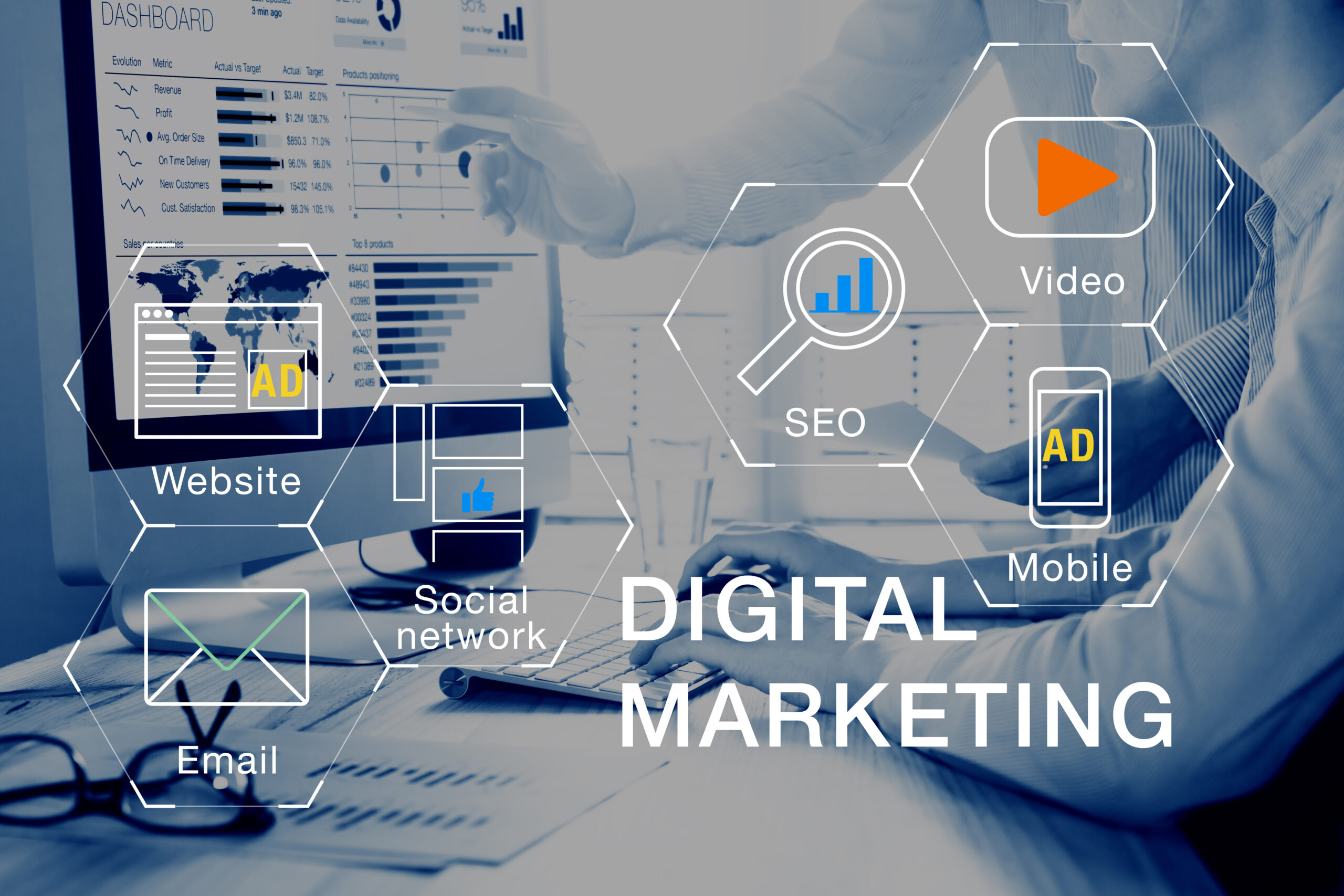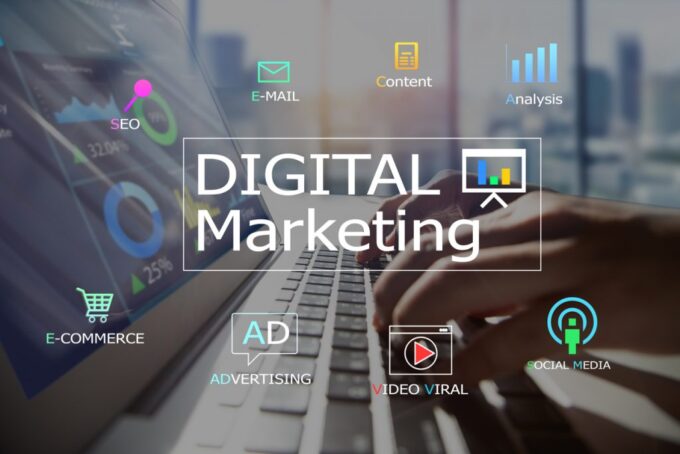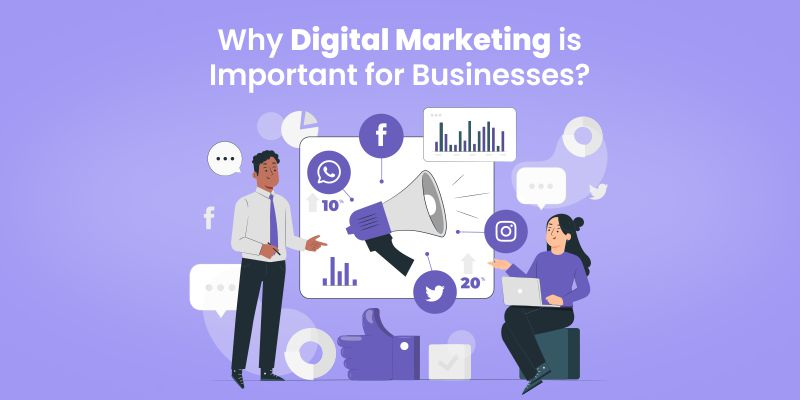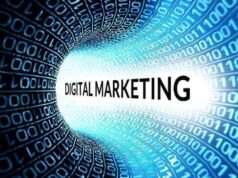Businesses are at a crossroads in today’s hyper-connected world, where customers are continually engaged in the digital domain. With conventional marketing methods losing efficacy and having a limited reach, adopting digital marketing has become critical for any organization seeking to remain competitive and relevant.
The ability of digital platforms to engage, influence, and convert clients is unrivaled, making it critical for businesses to capitalize on this ever-changing market. And a Digital Marketing Certification can help you to grow your business by learning and implementing various Digital Marketing strategies.
In this blog, we will investigate the indisputable relevance of digital marketing for organizations, investigating the revolutionary benefits it provides and revealing the major reasons why it has become a vital strategy for success in the current business ecosystem.
Marketing’s Evolution in the Digital Age

Before digging into the importance of digital marketing, it is critical to understand how marketing has changed in the digital era. To reach a large audience, traditional marketing depended primarily on mass media outlets such as television, radio, print, and billboards. However, with the introduction of the internet and the proliferation of digital gadgets, consumer behavior has shifted dramatically.
Individuals today consume material via numerous online channels, interact with companies, and make purchase decisions in a primarily digital world. Because of this fundamental shift in customer behavior, marketing tactics have undergone a paradigm shift, resulting in the creation and quick expansion of digital marketing.
The Increasing Importance of Digital Marketing
Expanding Reach and Targeting Capabilities: Digital marketing offers firms new capabilities to broaden their reach and precisely target their target audience. Companies may boost their online exposure and guarantee their offerings are prominently shown when potential buyers search for relevant keywords using tactics such as search engine optimization (SEO) and pay-per-click (PPC) advertising.
Social media platforms also have extensive targeting capabilities, allowing businesses to customize their messaging to certain demographics, interests, and behaviors, increasing the likelihood of engagement and conversion.
Cost-Effectiveness and ROI: When compared to traditional marketing tactics, digital marketing is frequently less expensive, making it accessible to organizations of all sizes. Digital campaigns may be scaled up or down as needed, and funds can be precisely allocated to ensure best resource utilization.

Furthermore, the ability to track and quantify the efficacy of digital marketing initiatives enables organizations to correctly assess their return on investment (ROI). This data-driven strategy allows businesses to find the most effective techniques and deploy resources effectively, maximizing the impact of their marketing budget.
Measurable Results and Data-Driven Insights: One of the primary benefits of digital marketing is the ability to track and analyze results in real time. Businesses may measure website traffic, engagement levels, conversion rates, and other metrics using various analytics solutions.
This abundance of data gives priceless insights into customer behavior, preferences, and trends, allowing firms to fine-tune their marketing tactics and make data-driven decisions. Such insights enable businesses to swiftly respond to changing market conditions and stay ahead of the competition.
Improved Customer Engagement and Personalization: Digital marketing allows firms to interact with their customers on a more personal level. Companies may develop strong relationships with their target audience through social media interactions, email marketing campaigns, and personalized content.
Businesses may customize their marketing messages and products to create a more personalized and relevant experience by knowing their consumers’ requirements and preferences. This degree of interaction promotes brand loyalty and improves the whole customer experience, resulting in higher customer retention and advocacy.
Competing in the Global Marketplace: Because the digital world transcends geographical borders, firms may reach and engage customers on a global scale. Even small firms may compete in the worldwide economy with the correct digital marketing strategy in place.
Businesses may adjust their marketing messaging and campaigns to resonate with multiple cultures and markets through localization initiatives, increasing their client base and market share.
Advantages of Digital Marketing in Business

Efficacy
Digital marketing is frequently more cost-effective than traditional marketing platforms. Digital campaigns may be run on a variety of budgets, and organizations can scale their efforts up or down based on their financial capabilities.
Unlike conventional media, which requires huge expenditures for ad placements, digital marketing provides more economical solutions, such as pay-per-click (PPC) advertising, in which firms only pay when a user clicks on their ad. This low-cost strategy makes digital marketing accessible to organizations of all sizes.
Results that can be measured and data-driven insights
The capacity to track and analyze outcomes in real time is one of the most significant benefits of digital marketing. Businesses may use analytics software to measure website traffic, engagement levels, conversion rates, and other metrics.
This data gives significant insights into customer behavior, preferences, and trends, allowing organizations to make data-driven choices and fine-tune their marketing campaigns as needed. Businesses may improve their marketing efforts by regularly monitoring and campaign performance.
Customer Engagement and Personalization

Digital marketing allows organizations to interact with customers on a more personal level. Businesses may develop strong relationships with their target audience through social media interactions, email marketing campaigns, and personalized content.
Businesses may customize their marketing messages and products to create a more personalized and relevant experience by knowing their consumers’ requirements and preferences. This degree of interaction promotes brand loyalty and improves the whole customer experience, resulting in higher customer retention and advocacy.
Flexibility and adaptability
Digital marketing allows organizations to swiftly adjust their strategy. In contrast to traditional marketing, strategies, which need substantial preparation and lead periods, digital marketing initiatives may be created and updated on the go.
This agility enables organizations to adapt quickly to market developments, client input, and emerging trends.
Furthermore, digital marketing platforms and channels are always growing, creating new chances for firms to experiment, innovate, and remain ahead of the competition.
You can watch our Digital Marketing Course video to know about strategies that can help your business grow.
Disadvantages of Business Digital Marketing
Saturation and Intense Competition
The digital marketing scene is very competitive, with firms competing for the attention of online visitors. The fight for exposure and engagement grows as more firms adopt digital marketing. Because of this saturation, it can be difficult for businesses to stand out and attract the attention of their target audience.
To overcome this disadvantage, organizations must create distinct value propositions, captivating content, and innovative tactics to set themselves apart from rivals.
Technical experience and competence Requirements

In order to implement effective digital marketing strategies, a certain degree of technical experience and competence is required. To effectively exploit digital marketing platforms, tools, and tactics, businesses must first comprehend them. This might be difficult for organizations that lack in-house experience or the financial means to engage in training or recruiting specialized specialists.
To achieve successful campaign implementation, it may be necessary to outsource or collaborate with digital marketing organizations.
Concerns about data privacy and security
Digital marketing involves the acquisition and use of client data. While this data provides great insights, it also presents privacy and security issues. Businesses must ensure that they comply with data protection requirements and put in place strong security measures to secure client information.












